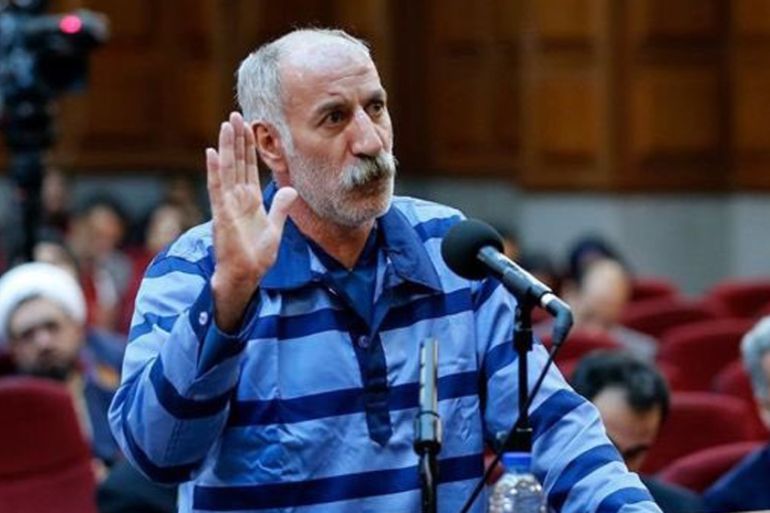Iran executes Sufi man over deadly Tehran bus-ramming
Death sentence widely criticised, with many saying that 51-year-old Mohammad Salas did not receive a fair trial.

A member of a Sufi order has been hanged in Iran over a bus-ramming incident that killed three police officers and two security force members during protests in February in Tehran.
The man, identified by the Tasnim news agency as Mohammad Salas, received the death sentence in March and was executed at a “correction facility” on Monday.
Keep reading
list of 4 itemsBirth, death, escape: Three women’s struggle through Sudan’s war
Does Israel twist humanitarian law to justify Gaza carnage?
Vatican denounces gender-affirming surgery, gender theory and surrogacy
Salas is a member of the Gonabadi Dervish group, which has been protesting in the Iranian capital against alleged religious repression by the government, and the reported threat of arrest of its leader, the 90-year-old Noor Ali Tabandeh.
Salas reportedly drove the bus that ran over the officers, as they tried to contain the protests in the Pasdaran district of Tehran.
At least 30 other police officers were injured in the incident, according to Tasnim.
The incident in February was partly captured on video and circulated widely online.
⚡Iranian Dervish community of Gonabad clash with police in northern Tehran, near their spiritual leader's house
⚡3 police reprtdly dead after a minibus ran them over.
⚡State TV: Driver was Dervish protestor
⚡2nd runaway car injured 3 more police
⚡ 160 Dervishes arrested pic.twitter.com/tDXHfxXawi
— Ali Noorani (@ali_noorani_teh) February 19, 2018
The death sentence was criticised on social media in recent days, with many saying the 51-year-old had not received a fair trial.
In a statement on Monday, Amnesty International said it was “shocked and saddened” at the news of Salas’ execution.
We are shocked and saddened to announce that Mohammad Salas was executed this morning. We'll have more later but for now we are reposting our press release from yesterday, which details our concerns regarding his grossly unfair trial https://t.co/3JtimWOHiH #SaveSalas #محمد_ثلاث pic.twitter.com/dX5aqnU18G
— Amnesty Iran (@AmnestyIran) June 18, 2018
Media reports said that Salas had filed a confession after his arrest, but he later retracted it and said that he had confessed under duress.
In an audio statement released by Salas’ lawyer, Salas was quoted as saying, “I cannot even kill an ant,” according to a report by the group, Iran Human Rights Monitor.
|
|
The Center for Human Rights in Iran also quoted Salas as saying that his “conscience is clear”.
Witnesses apparently said that someone else was behind the wheel of the bus.
An appeal filed by Salas’ lawyer was rejected.
At least 300 members of the Gonabadi Dervish group were also arrested at the protests.
In January, at least 10 members of the group were imprisoned in southern Fars province. Other followers are reportedly held at Tehran’s Evin Prison.
The Gonabadi Dervish followers are Shia Muslims, like the majority of Iranians, but they follow a mystical path and do not obey the country’s official religious leaders.
This has created tensions between the group and Iran’s conservative leadership.
According to the Center for Human Rights in Iran, the Sufi Muslims are viewed as a threat to mainstream Shia Islam in the country, and its religious establishment frowns upon conversions.
For centuries, however, Iran has allowed other major religions – such as Christianity, Judaism and Buddhism – to exist in the country.